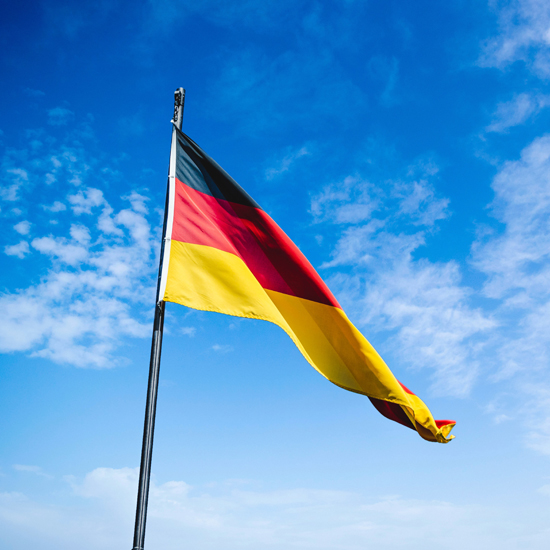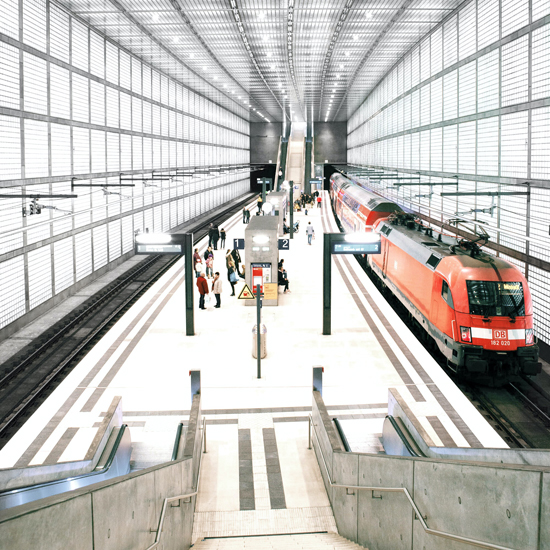German
Professional German language translators providing ISO-certified German to English / English to German translation services for all major industries.

German language and its speakers
With some 95 million speakers, German is the most widely spoken mother tongue in the European Union. It is also one of the three leading languages of science and research, alongside English and French.
Key Facts about the German language:
- German is the first language of about 100 million people worldwide and the most spoken language in the EU. It is also one of the three working languages of the European Union. The German language is also the official language in Austria, Belgium, Germany, Liechtenstein, Luxembourg, Switzerland, and Italy.
- German ranks among the world’s ten most widely used languages in terms of overall speakers (native and non-native) – after Mandarin Chinese, English, Hindi, Spanish and Arabic.
- Germany has the largest population in the EU. Estimates for 2022 put the total population at 83 million, with a 0.32% growth rate compared to the previous year.
Challenges faced by German language translators
1. Idioms
Adapting English idioms and expressions into German equivalents is one of the most challenging aspects of translating from English to German.
If a phrase or idiom in English has no direct equivalent in German, translators must make inferences about its meaning from the context it appears in, which can sometimes lead to the loss of some subtlety.
For example, in English, a phrase such as “the ball is in your court,” intended to remind someone that it is their responsibility to act on an issue at hand, cannot be directly translated into German. In this case, translators have two choices: they can either find an equivalent idiom in German or omit the idiom entirely.


2. Formal vs. informal speech
Adapting English idioms and expressions into German equivalents is one of the most challenging aspects of translating from English to German.
If a phrase or idiom in English has no direct equivalent in German, translators must make inferences about its meaning from the context it appears in, which can sometimes lead to the loss of some subtlety.
For example, in English, a phrase such as “the ball is in your court,” intended to remind someone that it is their responsibility to act on an issue at hand, cannot be directly translated into German. In this case, translators have two choices: they can either find an equivalent idiom in German or omit the idiom entirely.
3. Text expansion in German translations
German is known for its long compound words, which can be a headache for translation services. Therefore, when translating from German to English, consider that text expansion is necessary to accommodate lengthy German words and plans should never be made to condense the text.
For example, “insurance companies offering legal protection” (referring to insurance companies that indemnify your legal expenses for damage or harm you cause) find their German equivalent for the German word “rechtsschutzversicherungsgesellschaften”. Such a long word can cause severe design or web page layout problems.
Therefore, the trick to successful german translation services is knowing how much text expansion you’ll need before beginning any work on your project, then planning accordingly with your layout or design team.


4. Word order
The word order is also far more rigorous in German than in English.
For example, the phrase “I am going on holiday with friends” would be translated as “Mit Freunden fahre ich in den Urlaub,” which would be back-translated word-for-word into: “With friends, I am going on holidays.”
Therefore, with the word order being so rigid, the translator must have a strong grasp of German grammar.
5. False cognates
In addition to these grammatical challenges, there are also many false cognates that English speakers must watch out for.
For example, the German adjective “blank” can mean “bright,” but it also means “clean,” and one needs to use the adjective “rein” when referring to glass that has been washed.
Another common false cognate is the word “Gift” which in German refers to poison, not a gift.

Most common errors when translating from English to German (and vice-versa)

Mistranslating words
One common error is mistranslating words from German into another language.
For example, the word “schaden” can mean both “damage” and “harm”, so if the translator is not familiar with both meanings, they may mistakenly use the wrong word in their translation.
A simple proof that meaning and vocabulary definition are two different things.
Mistaking the meaning of a sentence
This can happen when the translator does not understand the specific meaning of a word in the sentence or does not know how different parts of speech relate to each other.
For example, in the sentence “Ich rufe dich an, wenn ich zu Hause bin,” a German speaker would understand that the person is going to call his friend once he arrives home.
But it might sound like he is going to make a phone call while at home when translated into English.


Incorrect use of grammar
Another common error is the incorrect use of grammar when translating from German into another language. This can happen because there are many rules for conjugating verbs and using the case, gender, and endings in German, which do not apply when writing English.
Some examples include overusing the passive voice and using the wrong pronouns.
For instance, the German language has six different categories of pronouns that change depending on whether they are referencing the subject, object, or possessor.
Popular English expressions and their German language translations
English expression
“I’m looking forward to hearing from you.”
German equivalent
“Ich freue mich auf Ihre Rückmeldung.”
Back-translation into English
“I am looking forward to your reply.”
English expression
“We’re all in the same boat.”
German equivalent
“Wir sind alle in der gleichen Lage.”
Back-translation into English
“We are all in the same position.”
English expression
“You’re on thin ice.”
German equivalent
“Du bist auf einem seidenen Faden.”
Back-translation into English
“You are on a thread.”
English expression
“Do you want to come with me?”
German equivalent
“Bist du dabei?”
Back-translation into English
“Are you in?”
Why choose LingPerfect as your German translation services provider?
At LingPerfect, we provide accurate and on-time translation and localization solutions with fast turnaround time, made by professional translators with experience in all major industries, including engineering, finance, law, and life sciences.

Our professional German translators are prepared to handle any assignment you have, no matter how complex.
Our team of linguists is composed of highly-trained professionals who boast both educational backgrounds and previous work experience in a wide variety of fields and disciplines, so we can accurately and efficiently translate even the most demanding translation projects with ease.
Our team members are 100% native german speakers: bilingual, but also bi-cultural, so they have a deep understanding of both American and German cultures.
With this kind of insight into the intricacies of communication across cultures, we can navigate even the most nuanced communication problems easily and efficiently to deliver every translation project with the utmost quality.

Speak to our German translation department
Our German language translators & interpreters are:
- Native speakers of both English and German languages
- Graduates of translation schools and universities
- Have documented proof of excellent English and German language skills
- Possess outstanding expertise in their fields of specialization
- Experienced linguists who have been working in the language services industry for years
- Adhere to strict confidentiality policies and non-disclosure agreements
- Skilled in providing certified translations (legalization) for documents that are to be used in Germany or Europe
- Adept at creating German translation memories, glossaries, and terminology lists for English-to-German projects
Professional German language translators & localization services for all major industries and business sectors

LingPerfect german translators provide high-quality translations for global corporations, small businesses, startups, and organizations. We have worked with many clients, from Fortune 500s to pioneering startups.
Our German language services span the following sectors:
- medical & life sciences translation
- legal documents translation
- advertising, marketing & public relations translation
- IT & software localization
- website translation & localization
- government documents translation
If your German translation projects are not listed here, and you’d like to get a quote from us, please feel free to contact our sales team for a free quote.












